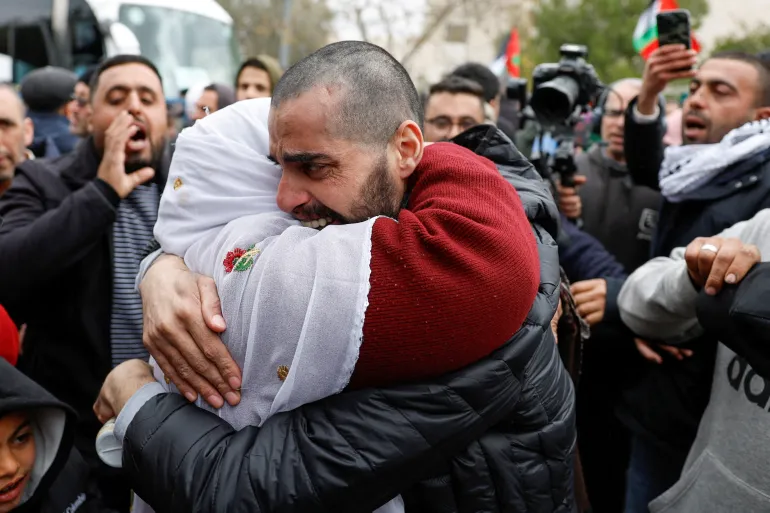Efforts to broker a lasting peace between Israel and Hamas have intensified following the announcement of a ceasefire and an agreement to return the remains of eight Israeli hostages.
The fragile truce, which came into effect on January 19, marks a significant step toward ending the 15-month-long conflict that has gripped the Gaza Strip and surrounding regions.
Hostage Return and Ceasefire Commitments
As part of the ceasefire agreement’s first phase, Hamas is set to hand over the bodies of four hostages, including members of the Bibas family—Shiri Bibas and her two young sons, Kfir and Ariel—as well as Oded Lifshitz.
The Bibas family has become emblematic of the hostage crisis, and their return is a poignant moment in the ongoing negotiations.
Israeli Prime Minister Benjamin Netanyahu described Thursday as “a heartbreaking day, a day of grief” as Israel prepares to receive the remains. The repatriation follows a previous exchange in February, when Hamas released Yarden Bibas, the father and husband of the Bibas family.
The agreement also saw 19 Israeli hostages released in exchange for over 1,100 Palestinian prisoners. With 14 more hostages still eligible for release under phase one, Israeli authorities believe that at least eight of them are no longer alive.
The National Forensic Medicine Institute in Tel Aviv has mobilized medical teams to expedite the identification of the remains.
Negotiations for a Comprehensive Peace Deal
Diplomatic efforts have gained momentum as both sides express willingness to extend the ceasefire and move toward a more permanent resolution. Senior Hamas official Taher al-Nunu announced that Hamas is prepared to release all remaining hostages in a single swap under the upcoming second phase of the negotiations. This significant gesture could pave the way for broader peace talks and potential de-escalation of hostilities.
Israeli Foreign Minister Gideon Saar confirmed that negotiations on the next phase are set to begin this week, aiming to solidify long-term stability in the region. While tensions remain high, both Israel and Hamas have shown a degree of restraint in recent weeks, signaling a possible shift towards diplomatic engagement over military confrontation.
International Involvement and Mediation
Global actors, including the United Nations and key Western nations, have reiterated calls for a lasting ceasefire and a peaceful resolution to the conflict. UN Secretary-General Antonio Guterres urged all parties to prioritize humanitarian efforts and commit to sustained peace talks. The Red Cross has continued to play a crucial role in mediating exchanges, while governments such as the United States and France have engaged in back-channel diplomacy to support de-escalation efforts.
The return of hostages and prisoners remains a central aspect of the ceasefire agreement, but broader concerns—including rebuilding Gaza, ensuring humanitarian aid access, and addressing security concerns—will be key factors in achieving a durable peace.
Challenges and Prospects for Stability
Despite the progress made, both Israel and Hamas have accused each other of minor ceasefire violations, raising concerns over the fragility of the current truce. However, with both parties now engaging in structured negotiations, there is renewed hope that the region can avoid a return to full-scale hostilities.
The upcoming phase of negotiations will focus on implementing confidence-building measures, including prisoner exchanges, humanitarian relief efforts, and potential steps toward mutual security guarantees. If successful, these discussions could lay the groundwork for a broader peace settlement that addresses the underlying grievances fueling the conflict.
As diplomatic efforts intensify, the ongoing ceasefire presents a crucial opportunity for both Israel and Hamas to work toward a sustainable resolution. The return of hostages and the commitment to further negotiations indicate a growing willingness to pursue peace.
However, achieving long-term stability will require continued international support, mutual compromises, and a commitment from both sides to prioritize diplomacy over armed conflict. The coming weeks will be critical in determining whether the current momentum can be sustained toward a more enduring peace agreement.

